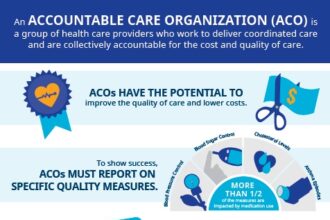 1. Changing How We Pay
1. Changing How We Pay
There are few aspects of healthcare that are more controversial, confounding and frustrating than payment reform. It’s hard to imagine that there was ever a time when patients just paid the doctor for their services.
 1. Changing How We Pay
1. Changing How We Pay
There are few aspects of healthcare that are more controversial, confounding and frustrating than payment reform. It’s hard to imagine that there was ever a time when patients just paid the doctor for their services. Since that payment method created economic disparities in access among the rich and the poor, several reforms later we find ourselves somewhat on the opposite end of the spectrum: more patients than ever can have access to care, but the process for compensating physicians hasn’t been able to keep up. Doctors are rendering services without receiving payment – and their practices can’t sustain on that type of arrangement!
2. More Patients, More Paperwork.
Practices that are seeing a greater number of patients than ever before but receiving inconsistent reimbursement, or in many cases, record-low reimbursements from insurers, are struggling to keep up. Not only that, but with the administrative burden on physicians to wrangle the latest documentation and claim submitting technology, as many as 70% of physicians spend one whole day of each work week on administrative tasks alone. That’s one day less for patients.
3. Are You Asking The Right Questions?
Preliminary research has indicated that as much of a quarter of all claims will go unpaid. Sometimes this is due to a flat-out denial by the payer, but other times it’s that, for one reason or another, the claim was never resubmitted or appealed. Even if the physician’s practice does everything necessary to take care of the claim, they can still be lost or ignored by the payer, sitting on someone’s desk somewhere for eternity, forever unpaid.
One way to combat this is by taking a very close look at your claims process:
- How do you evaluate your claims prior to submitting them?
- When you receive a denial, do you take it at face value or attempt to resubmit it in hopes of having the denial overturned?
- Do you know at what point it makes sense for your practice to cut your losses and move on?
- Does the technology you use for claim review and submission gel with the staff who uses it? Do you make sure that it’s updated and on par with the market standard for claims software? Is it secure?
- Do you constantly learn from your experience with denials and find ways to improve your process, streamline your staff and reduce your denials?
4. Medicare Spending is Skyrocketing
When it comes to government payers, there’s only so much that a private practice can do in the face of ever increasing costs. Medicare spending has surpassed the projected trajectory every year since 2002 – and it’s a trend that’s likely to continue. That’s one reason the demand for reform is placing such unreasonable timetables on hospitals and providers: there’s no time to lose.
5. Shifting to Value-Based Care
Simultaneously, while attempting to reign in costs providers are also being asked to shift their focus to value-based care. It’s no longer satisfactory for a physician to provide good care, they must also do so cost-effectively. Striking a balance and finding that sweet spot between great care that works and care that isn’t costly is no small task. At this point, many doctors spend more time trying to diagnose and treat the healthcare system than their patients.
6. Other Industries Focus on Value
It does, of course, make sense that there should be a relationship between how physicians are paid and the quality of the care they receive. We demand quality in every other industry – so why not healthcare? When our standards aren’t met in other areas, we demand a refund or some kind of discount – anything to offset our perceived loss. In industries other than healthcare, this has long been standard because it breeds healthy competition and keeps the market evolving. Value-based purchasing in healthcare will create competition for services and, therefore, will require patients to define their standards.
7. How Do We Pace Ourselves?
Through ACOs, many patients can comfortably align themselves with the government’s standards of quality care – but it’s too early to tell if this will be a long term solution to healthcare’s economic woes. The shift away from fee-for-service models has taken hold, but the progress is apt to be slow. To extricate ourselves too quickly from the model would create gaps and even more chaos – but, to draw it out too long might create stagnation from which we are unlikely to ever recover. Again, pacing in reform is important – but it’s awfully hard to pace ourselves when we’re being urged on at every turn to “fix” healthcare.


 1. Changing How We Pay
1. Changing How We Pay




